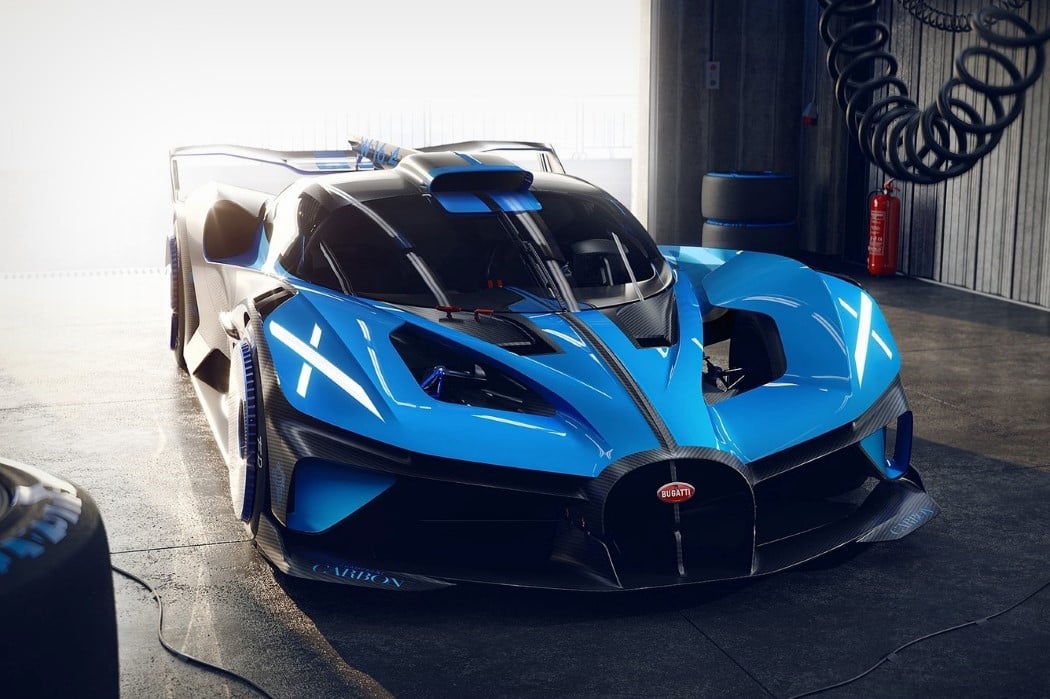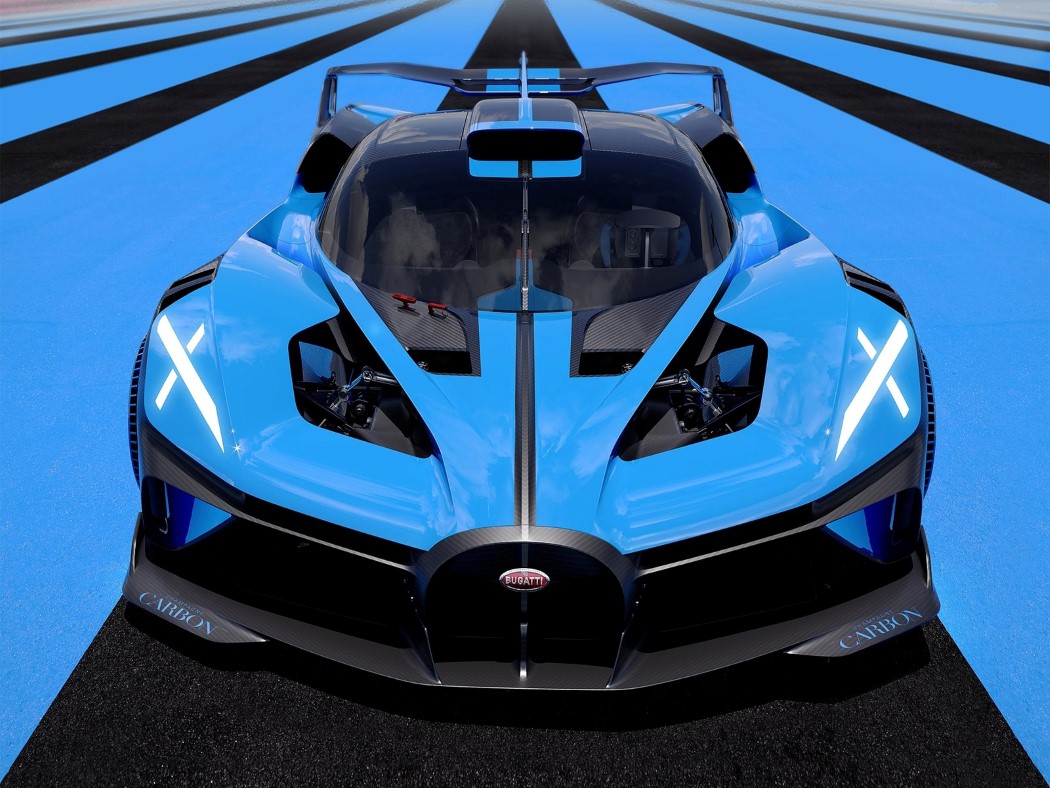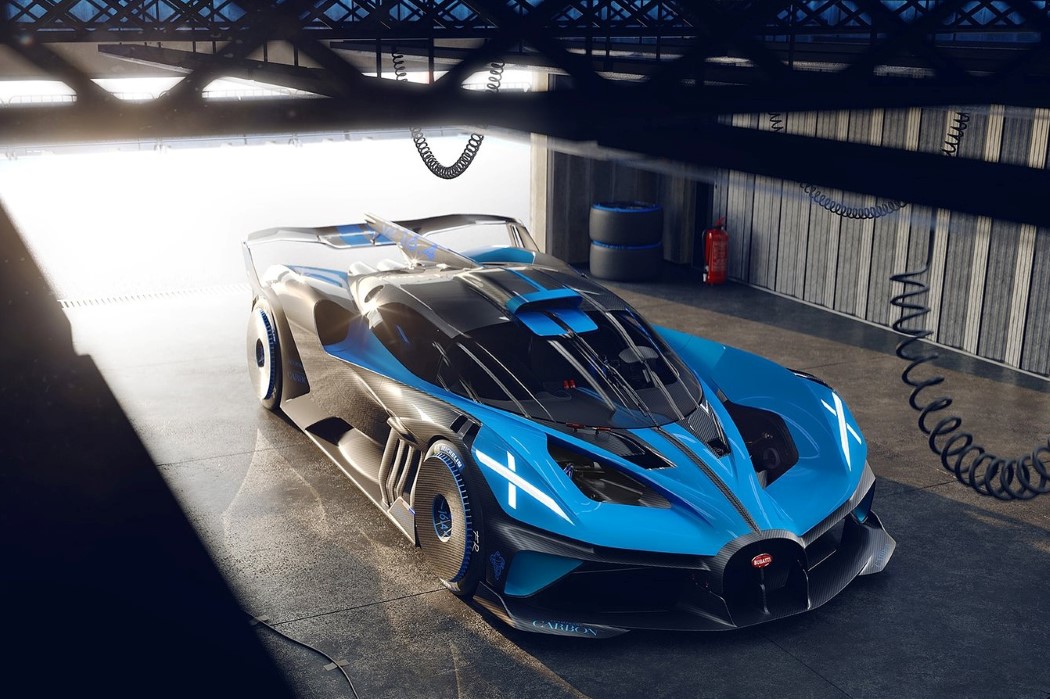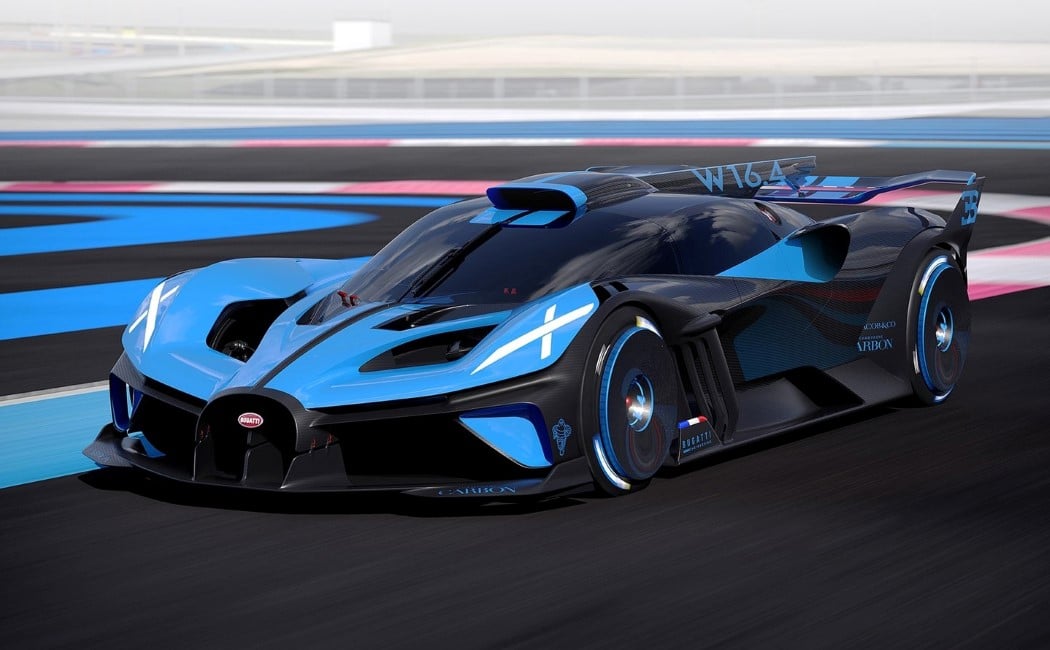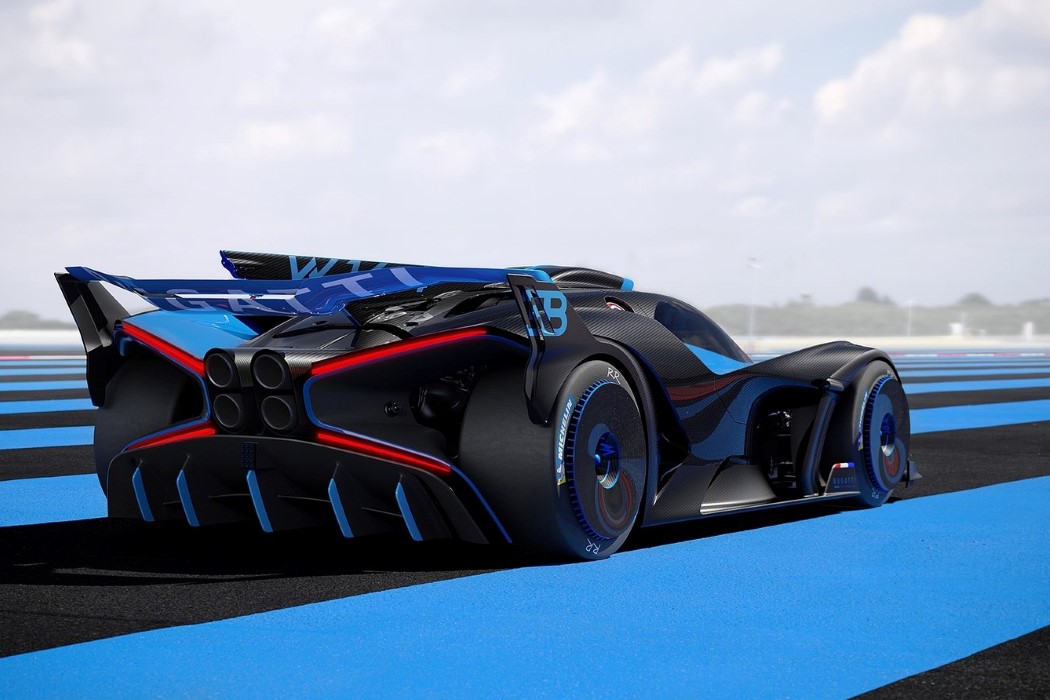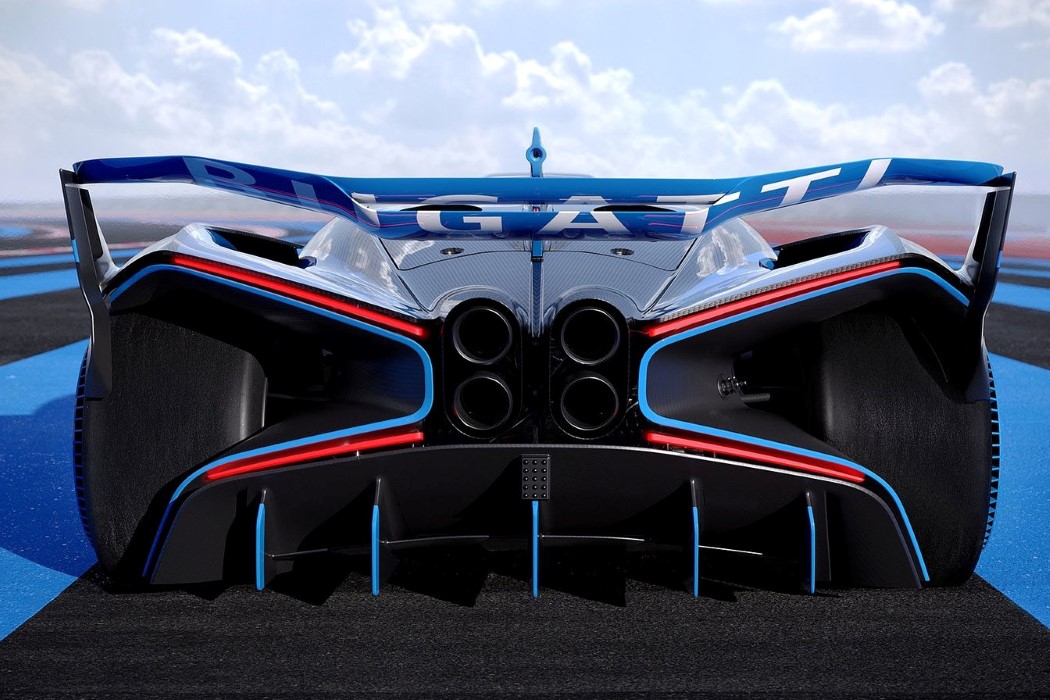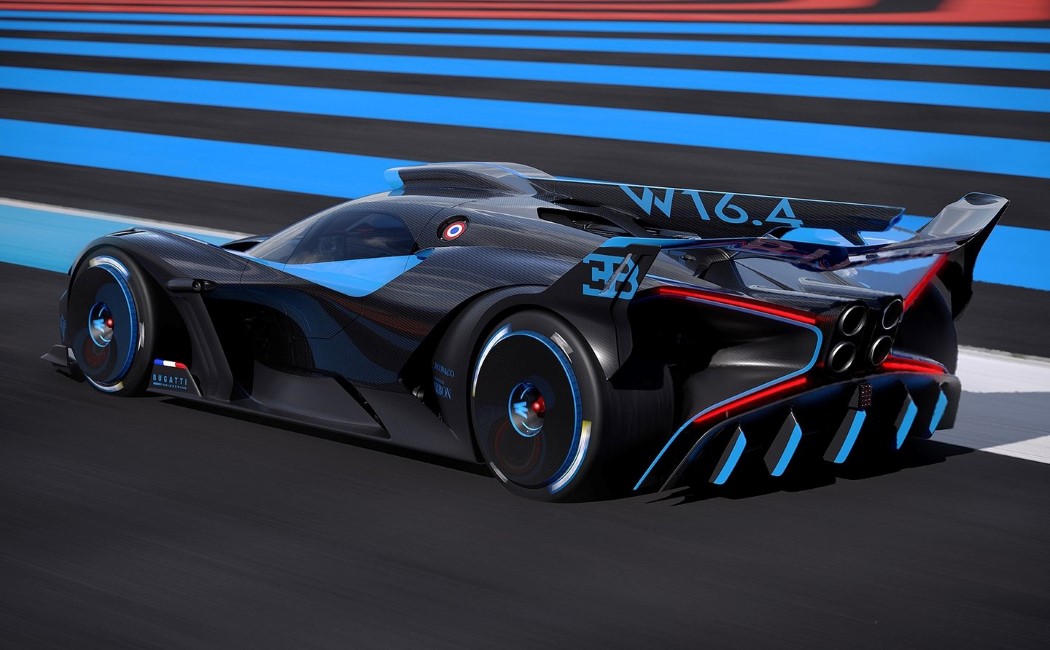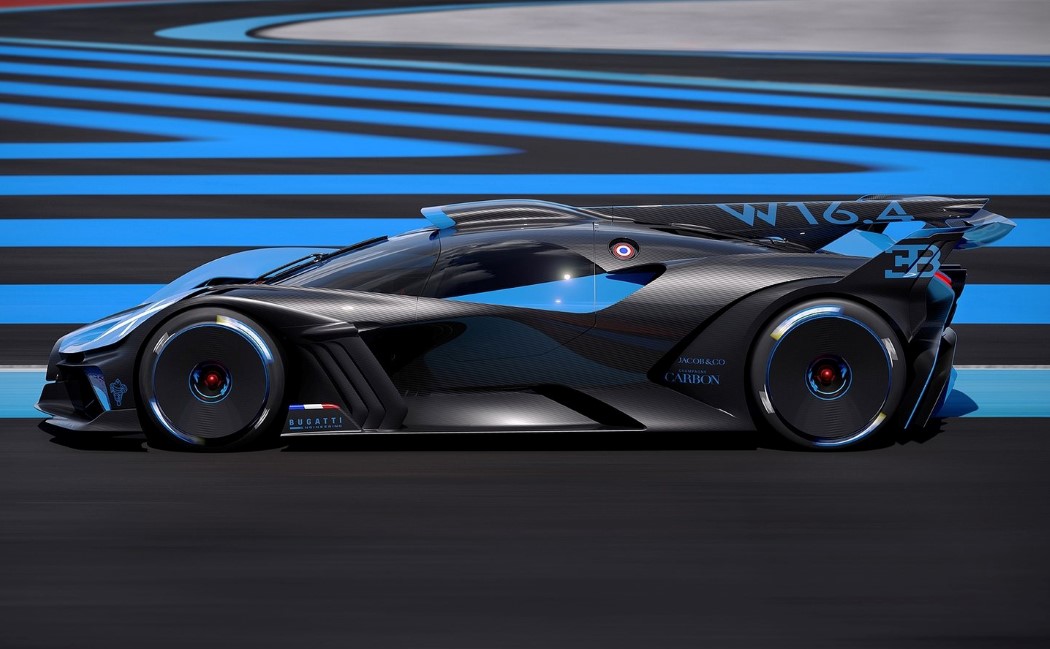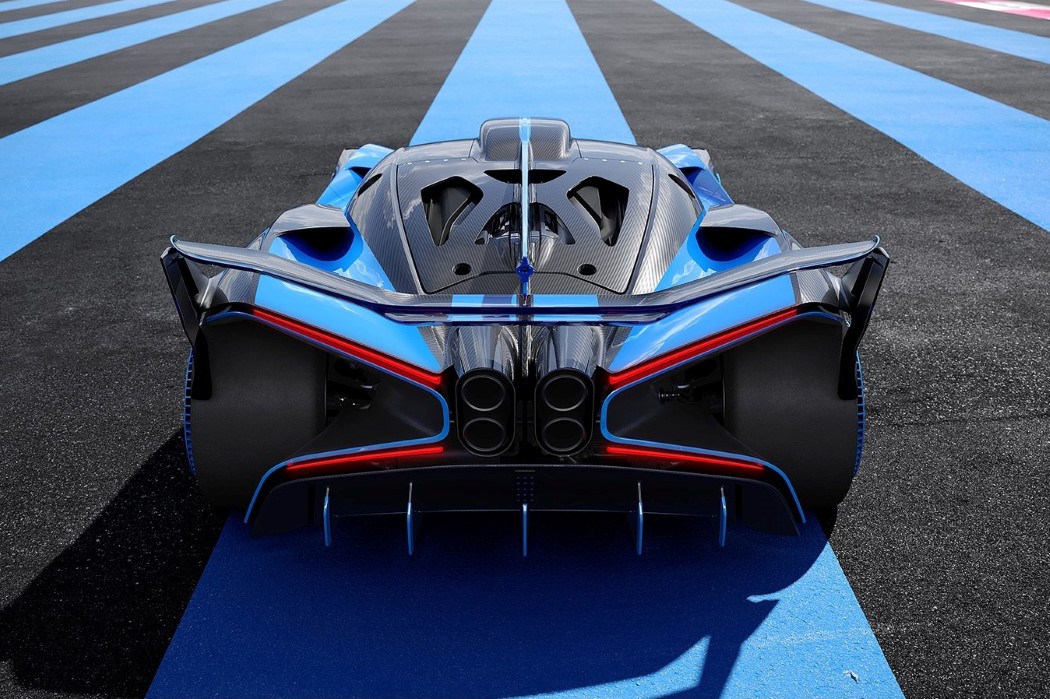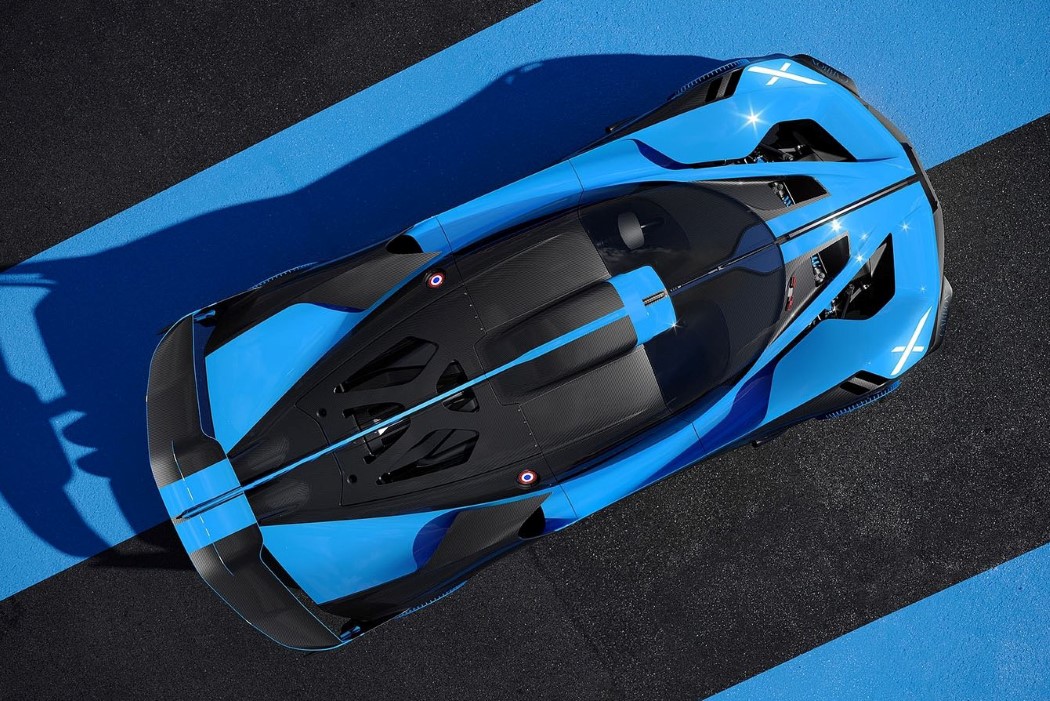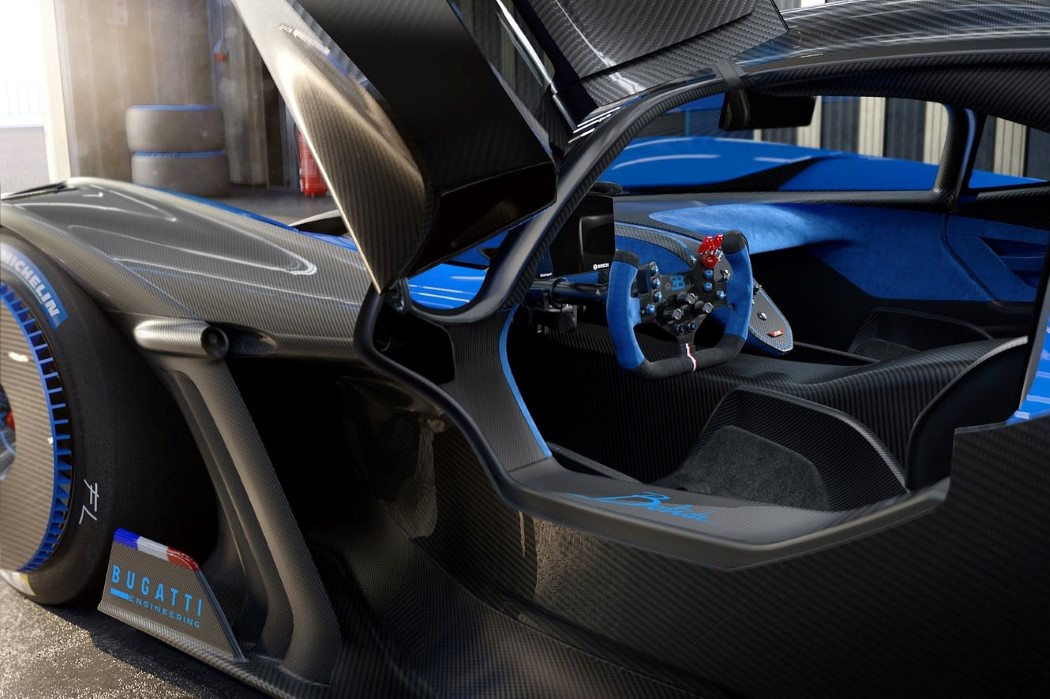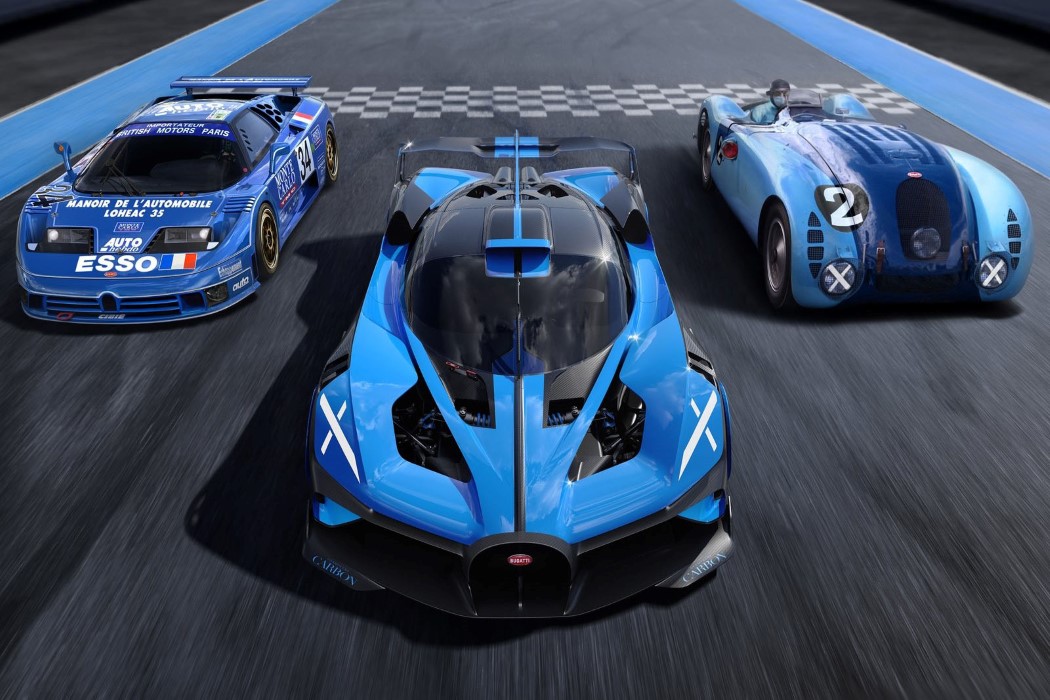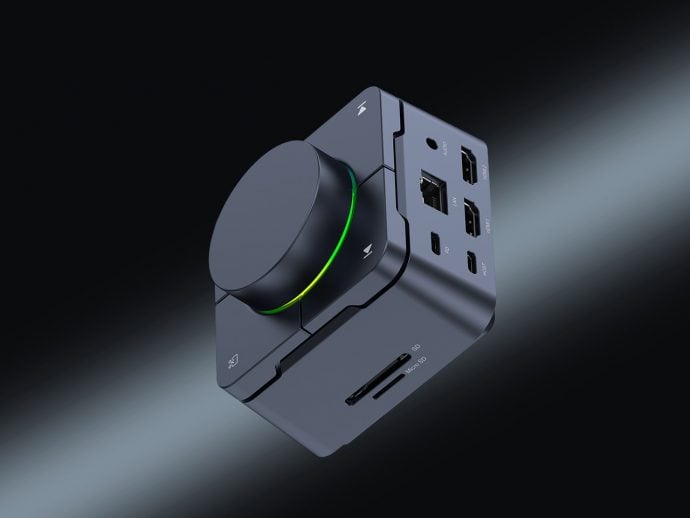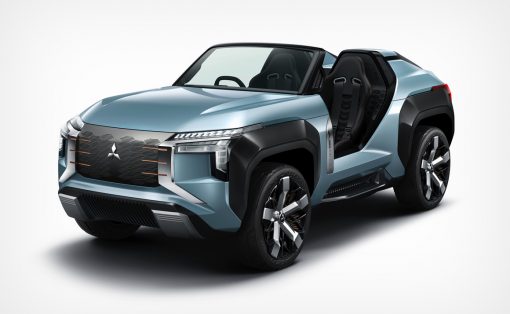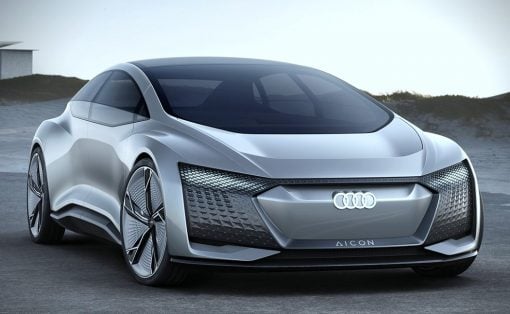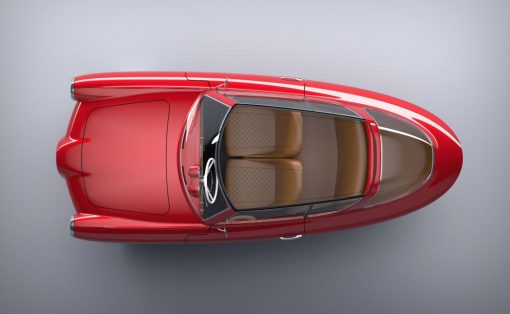Touted as “the most extreme, uncompromising, fastest and lightest” car it has ever made, the Bugatti Bolide seems to marry the best of Bugatti’s technical genius, design expertise, and brand values into one automobile. Bugatti was known for making some of the world’s lightest racecars before being acquired by Volkswagen. Under their new ownership, the company created record-shattering speed-demons like the Veyron and Chiron, but lacked in the one area they shone in back in the day, a light automobile. The Bolide hopes to be a “radically light vehicle” that harks back to the old Bugatti days, but without compromising on the speed, values, and aesthetic standards the company’s set in modern times.
“We asked ourselves how we could realize the mighty W-16 engine as a technical symbol of the brand in its purest form—with solely four wheels, engine, gearbox, steering wheel and, as the only luxury, two seats,” Bugatti boss Stephan Winkelmann said in a statement. “Important aspects of our considerations were fine-tuning our iconic powertrain without any limitations as regards the weight-to-power ratio”. The result is a car that almost perfectly walks the balance between form and function, with an aesthetic that is drop-dead gorgeous, but also engineered perfectly for performance.
The car comes with a carbon-monocoque body, engineered to make the overall vehicle lighter than a Mini Cooper. Under the hood sits the quad-turbo W-16, one of Bugatti’s engineering marvels. Couple that with the car’s all-wheel-drive and you have a 1,825 horsepower beast capable of hitting well over 300mph and allowing it to complete a Le Mans lap in 3:07 minutes, faster than any LMP1 car.
A lot of the Bolide’s ability to hit high speeds is a direct result of its fusion of design and engineering. The car’s body is lightweight for sure, but it’s also made to maximize downforce, and comes with a couple of unusual features to increase air-flow and reduce drag. The rear wing and front splitter are both adjustable, allowing them to autonomously reposition themselves based on your speed, but by far the Bolide’s most interesting detail lies in its air-intake on the car roof. Made from a morphable outer skin, the roof’s surface changes based on the speed you drive at. It remains flat at lower speeds, but when you start to pick up pace, bubbles on the roof’s surface inflate to increase its surface-area and allow more air to come in contact with it, optimizing air-flow to the rear wing. To indicate the experimental nature of this new, innovative detail, Bugatti even employed an X-shape in both the headlights and the taillights. The headlights heavily remind me of the X in the SpaceX logo, but I digress… The interiors reinforce the Bolide’s need for speed. If the exterior spots shape-shifting air-intakes and four afterburners, the insides are designed to look like the cockpit of a jet engine, with two racing seats complete with six-point harnesses, a complex steering wheel in front of a digital gauge cluster, and a small panel on the dash with push-button transmission controls and a few other switches.
The Bolide was created as a grand tribute of Bugatti’s car-making prowess and its racetrack domination ever since the Type 35 in 1924, which went on to achieve over 2,000 victories in just 6 years since its production. Designed to inherit the race-track legacy left behind by its ancestor, the Bolide hat-tips Ettore Bugatti’s own genius in creating lightweight race-machines a century ago. The Bolide weighs a mere 1,240 kilograms (2733 pounds), and is currently only a race-track concept. Whether the Bugatti Bolide will go into series production is something that has not been decided yet.
Designer: Bugatti
